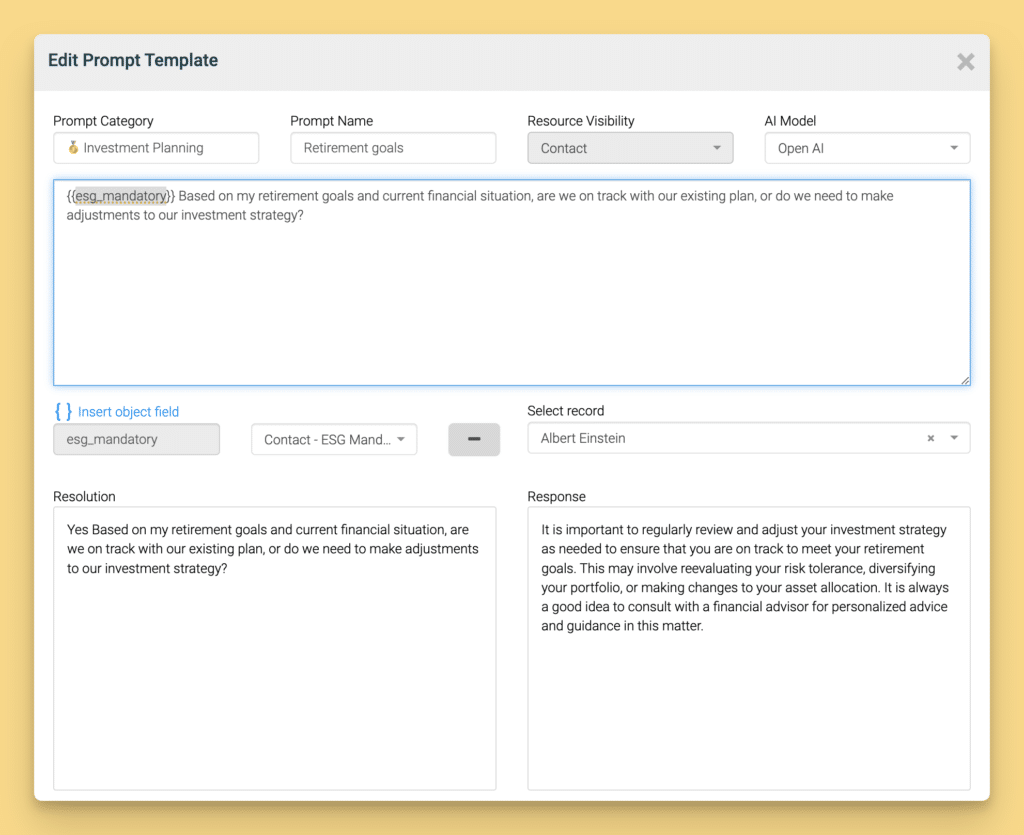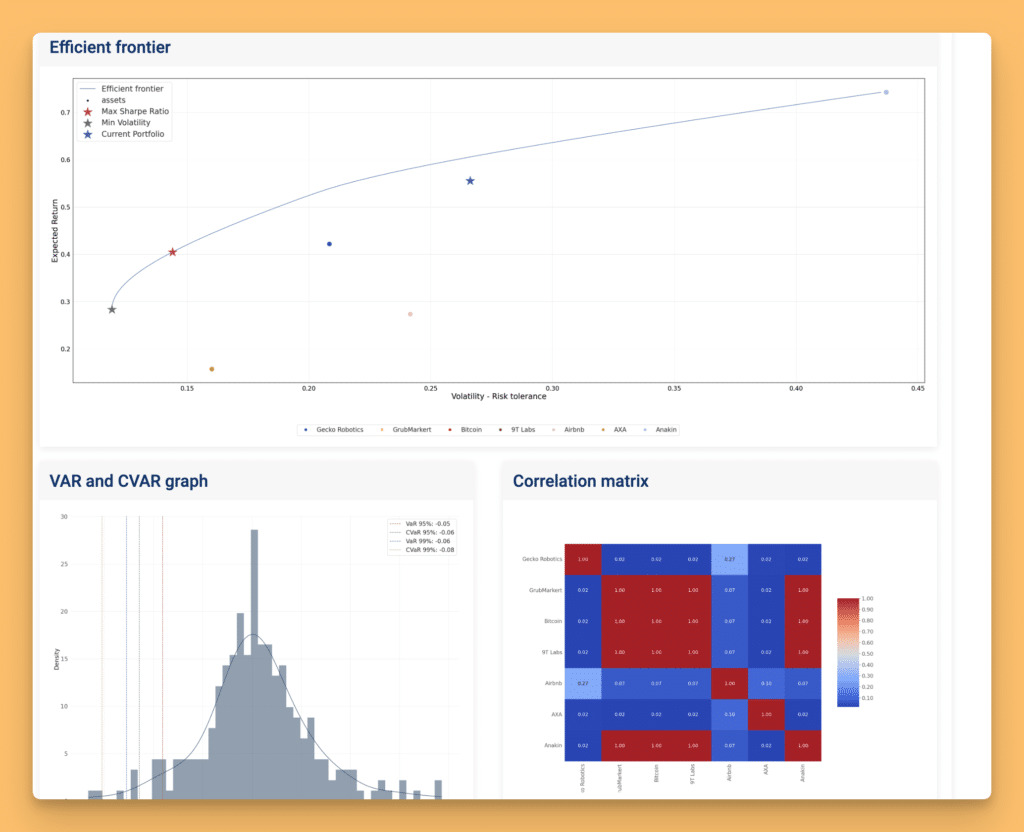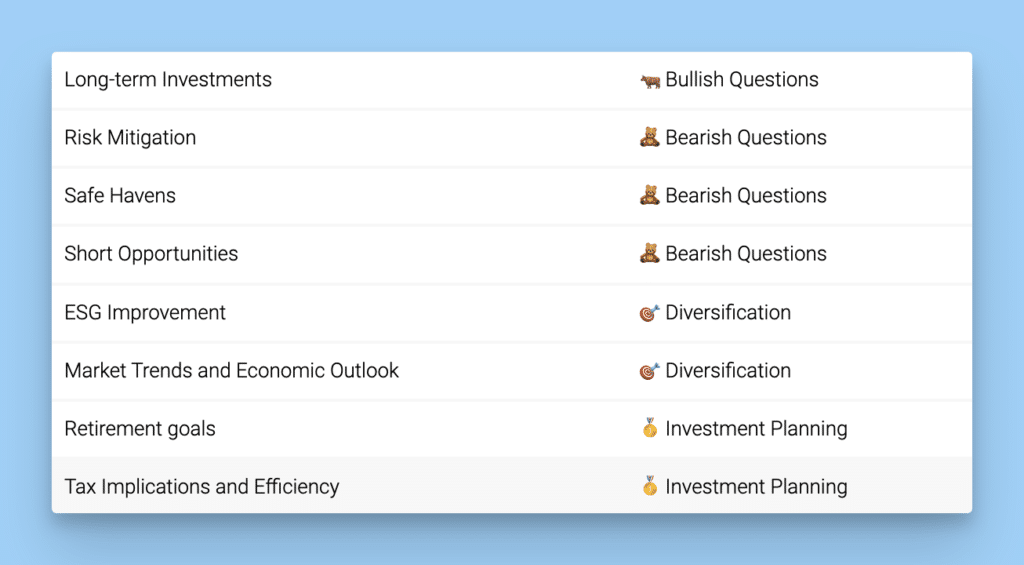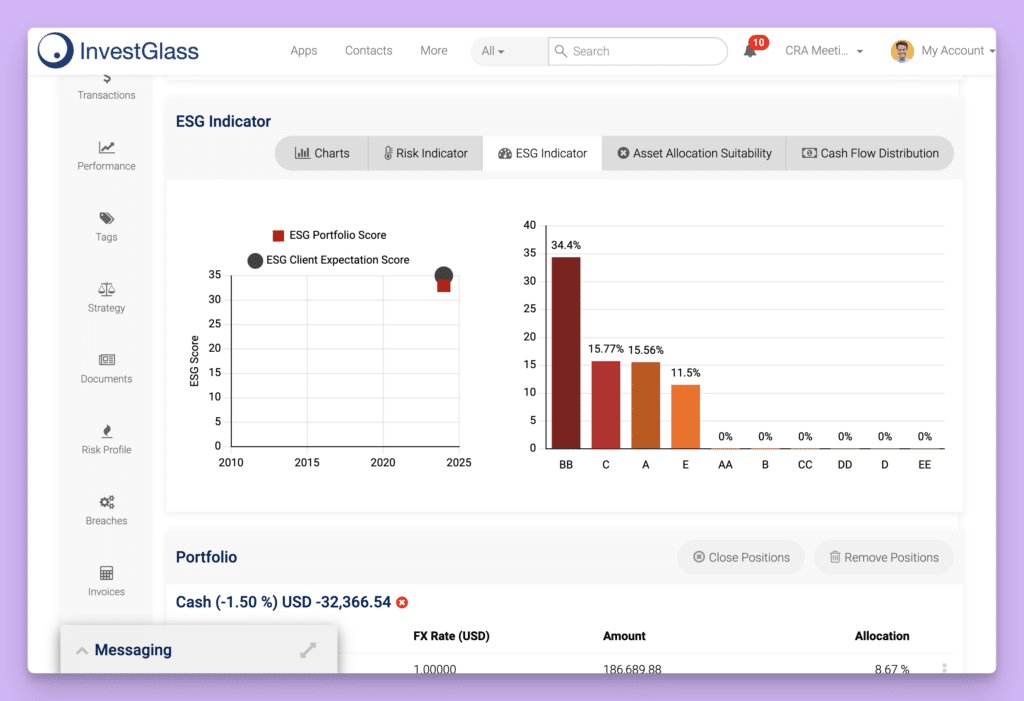What Does AI Think About AI in Private Banking: Starting Your Own Bank

AI is transforming private banking, with generative AI expected to add $200-$340 billion annually to the banking sector (McKinsey). It enhances personalization, fraud detection, and investment strategies, allowing wealth managers to offer tailored financial advice (Wipro). However, 80% of bank cybersecurity executives feel unprepared for AI-driven threats, highlighting the need for stronger security measures (Business Insider).
Key Takeaways
- AI is transforming the private banking industry by providing personalized services, detecting fraud and managing risk.
- Machine Learning, Natural Language Processing, and predictive analytics are revolutionizing wealth management through enhanced customer experience, task automation and precise predictions.
- Private banks can leverage AI benefits while addressing associated challenges such as bias, cybersecurity & change management for successful implementation.
Data: The Greatest Potential Risk and Advantage in Modern Wealth Management
In an era where data privacy and residency are paramount concerns, Swiss Neutral InvestGlass CRM stands out as a robust solution for safeguarding financial data in the wealth management sector. By offering the flexibility to be hosted locally, InvestGlass ensures that customer data remains within a secure and compliant environment, aligning with stringent regulatory requirements. This empowers wealth managers and private bankers to focus on delivering personalized services and identifying investment opportunities without compromising sensitive information. Leveraging advanced AI technologies and natural language processing, InvestGlass streamlines routine tasks, enabling professionals to dedicate more time to delivering personalized advice and enhancing customer experience. The platform’s AI algorithms and predictive analytics not only facilitate accurate predictions and smarter credit decisions but also help businesses anticipate market trends and mitigate potential risks. By processing vast amounts of data efficiently, InvestGlass allows firms to unlock new offerings and drive exceptional value for their clients. In short, InvestGlass combines cutting-edge technology with a strong commitment to data privacy, empowering businesses to achieve improved efficiency and remain ahead in a rapidly evolving financial landscape.
The Impact of AI on Private Banking

Private banking is rapidly evolving as AI technology plays a larger role in the industry. This advancement has been proven to help wealth managers optimize many aspects of PBWM, such as customer experience, business development, and automation processes by leveraging AI algorithms and customer data.
By utilizing artificial intelligence (AI), it’s now possible for private banks to personalize services according to customers’ individual needs while also preventing fraudulent activity by managing risk through thoughtful investment strategies. Private banking continues to benefit from this powerful tool, which brings innovative solutions that will ensure their long-term success and solidify their foothold within the global financial system.
Personalized Services
Gone are the days of blanket banking solutions. High-net worth individuals now seek tailored financial services to meet their individual needs through customer segmentation – this is where AI-driven personalization can enable banks to provide such services. Private banks can utilize huge amounts of data, which when processed and analyzed effectively leads to innovative offerings for customers along with superior customer experience, enhanced security, and lesser manual operations resulting in fewer mistakes or errors. By utilizing advances such as Augmented Reality (AR), Virtual Reality (VR) & Mixed/Merged Reality(MR), these private institutions provide simplified access to an individual’s account details and connected information thus providing a convenient self service module that greatly contributes towards improving user satisfaction levels overall.
Fraud Detection and Risk Management
Private banking ecosystems necessitate fraud detection and risk management, for which AI & machine learning technologies are vital resources. Banks can leverage these powerful techniques to process huge quantities of data in order to detect any questionable or abnormal activity through anomaly detection that could point towards fraudulent behavior. Due to its important role in reducing risks and providing a more effective method of fraud prevention, artificial intelligence has become an invaluable asset for safeguarding customers’ assets held at private banks.
Investment Opportunities
AI enables private banks to sift through data and detect patterns that may have gone unnoticed by human experts. This makes it an incredibly beneficial tool in finding investments and managing portfolios with accuracy, providing clients with more informed counsel while minimizing risk for maximum profitability. As a result of AI-enabled predictions, the investment realm is set up to enjoy faster wealth management processes thanks to this innovative approach.
Machine Learning and Natural Language Processing in Wealth Management

Wealth managers are using AI and NLP to revolutionize their practice, which can bring significant advantages. By utilizing machine learning technology and data analytics on vast data sets, they may be able to refine investments decisions, design customized portfolios for clients, accurately process large amounts of information quickly as well as identify patterns in markets trends that could benefit client experiences.
Using ML and NLP will enable wealth professionals to maximize returns by optimizing investment strategies while providing an improved experience for those seeking advice with the help of precise predictions generated from AI algorithms. Automation is also possible since these technologies cut down tedious manual work allowing more time dealing specifically with customers needs.
The combination of these two cutting-edge techniques has great potential when utilized correctly within the realm of wealth management as it can provide substantial financial benefits both internally amongst staff members but most importantly externally with respect to clients’ outcomes.
Enhanced Customer Experience
The private banking industry is being revolutionized by AI technologies. These banks now have the capability to offer personalized advice, recommendations and services that are tailored for their customers. With predictive analytics-driven insights at clients’ disposal, they can make more informed decisions regarding their finances as well. As a result, AI has vastly improved customer experience in the world of private banking.
Process automation, sentiment analysis through self-service modules also adds value when it comes to delivering an enhanced service across this sector of the financial industry. These features will continue developing over time with Advances within Artificial Intelligence technology aiding both customers and banks alike on future endeavors!
Automating Complex Tasks
As private banks are tasked with more and more complex operations like arranging mortgages, ensuring regulatory compliance, as well as running KYC/AML checks, AI-enabled automation allows staff to concentrate on more complex tasks like investment advisory and portfolio management. This automation is becoming increasingly necessary for streamlining these processes. It allows them to not only enjoy accuracy improvements while reducing processing times and cutting costs, but also shift their focus towards providing a superior customer experience that will promote the overall growth of the banking industry. Automated systems give private banks room to offer unique services tailored according to customers’ needs.
Accurate Predictions and Decision-Making
Private banking is reliant on the ability of AI-based predictive modeling and decision making for effective management. By incorporating cutting-edge technologies like machine learning, NLP and more into their operations, private banks are able to reduce risk while increasing returns simultaneously. Consequently, clients will receive a quality investment experience provided by sound advice generated from these insights that aid both bankers and customers alike in managing financial portfolios better as well as limiting any type of possible losses or setbacks.
AI technologies have become indispensable tools when it comes to private banking. Offering reliable predictions based off data collected can vastly improve operations within this industry with the ultimate aim being an improved outcome not only financially but also holistically for all involved parties, from those working at the bank itself down through its clientele base too.
InvestGlass: A Case Study in AI-Driven Private Banking Solutions

Private banking solutions enhanced by Artificial Intelligence and digital transformation are showcased through InvestGlass, a Swiss-based platform. The comprehensive package of tools is meant to benefit financial professionals and includes CRM (Client Relationship Management) as well as PMS (Portfolio Management System). Furthering this goal is the digital onboarding solution which works hand in hand with their client portal.
To explore the three key components that make up these AI powered private banking services: compliance & suitability, portfolio management & advisory offerings and finally marketing technology integrated into Client Relationships managers – we will do just that!
Compliance and Suitability
Private banking institutions must adhere to strict compliance and suitability standards, and InvestGlass’s AI-powered solution offers the perfect answer. Banks are enabled with automated compliance checks for efficient regulation adherence as well as real-time transaction monitoring, ensuring accuracy of internal operations alongside enhanced client experience. Wealth management strategies also benefit from incorporating sustainability risk considerations into their structure along with ESG factors in order to Increase a bank’s risk management potentiality. Ultimately, this allows private banks to maximize efficiency while simultaneously protecting customer interests when dealing in investments at all times.
Portfolio Management and Advisory Services

Private banks can now use AI-powered technology from InvestGlass to provide their clients with customized advice and increase returns. Through portfolio management services, such as asset allocation and risk assessment, this platform helps streamline investment tasks like stock screening. Banks are able to focus more on personalized service while automated processes handle data analysis for them – optimizing portfolios that suit each client’s goals best without compromising performance monitoring or other necessary considerations.
Marketing Tools and CRM Integration
In the banking industry, having state-of-the-art marketing resources along with a well organized CRM integration is critical for success. InvestGlass supplies an extensive selection of tools to help private banks achieve their goals, such as targeted email campaigns and customer segmentation methods that can be used in conjunction with seamless CRM connectivity. Private banks are able to improve their client categorization process, increase customer engagement levels and obtain valuable insights from these investing applications made available by InvestGlass.
Integrating this technology into existing Customer Relationship Management systems offers steady data movement which leads customers towards improved experiences overall within the private banking sector.
Overcoming Challenges with AI in Private Banking

Private banking stands to gain numerous advantages by embracing Artificial Intelligence (AI), yet the implementation of this technology brings with it some challenges like bias, cybersecurity and adapting to change. For private banks who wish to utilize AI’s full potentials in the industry successfully, these issues must be considered carefully.
Bias and Ethical Considerations
AI should be built with minimal bias and under the watch of ethical rules. Private banking can have a variety of issues, such as home preference, confirmation prejudice, overconfidence impediment and gender disparity. To reduce these biases, AI-powered decisions backed by regulations should be examined carefully during periodic audits to guarantee fairness for customers while shielding their data from unauthorized access. This could permit advanced personalized services in private banking that abide by moral values.
Cybersecurity and Data Privacy
Private banks need to prioritize cyber security and data privacy in order for their success. Banks must implement measures such as strong security protocols, secure networks, encryption techniques, and authentication processes. They should carry out regular updates of software and hardware along with access control monitoring procedures. This enables the protection of sensitive financial information from unauthorized individuals while guaranteeing banking customers’ accounts remain safe too. Private banking institutions can benefit greatly from taking these steps when it comes to protecting important data related matters surrounding their operations.
Change Management and Staff Adaptation
To enable successful AI implementation in private banking, effective change management, staff adaptation, and comprehensive training programs are essential. Private banks must be able to drive and execute organizational changes that will improve operations while conforming with market trends as well as enhance customer experience. For this purpose, the following measures should be put into place: providing training for personnel on how they can efficiently use available AI technologies, creating detailed policies guiding the application of such tools within bank activities, and offering support to employees during a transition period. By doing so, it is possible for them to make sure their process runs smoothly while achieving the most from implementing different kinds of Artificial Intelligence solutions in private banking services. Change control coupled with employee readaptation efforts allow private banks to ensure an efficient integration of artificial intelligence systems.
The Future of AI in Private Banking

The potential for AI technologies to bring around $1 trillion in value each year to global banks makes the future of private banking and AI immensely promising. With new offerings, Developments with regulatory compliance and modern business models being implemented through this technology, it’s certain that changes will be seen throughout the area soon enough. Private Banking stakeholders should concentrate on ways which seek out ESG criteria approaches combined with innovative applications of AI so as to get maximum benefit from their investments. Banks need sophisticated tools powered by Artificial Intelligence since they offer a variety these days such as improved customer experience across channels or instant payments among other things. All while making sure that crucial regulations are met appropriately at every level.
ESG Criteria and Responsible Investing
Private banks are increasingly needing to incorporate ESG criteria into their wealth management and risk management plans, due in part to the rising emphasis on sustainability. AI can play an influential role here through InvestGlass’s Data Management Platform (DMP). This technology is capable of assessing investments using these factors, allowing clients’ financial goals as well as values regarding social responsibility align with one another. Banks. Have a powerful tool at hand that could revolutionize how they approach responsible investing decisions.
Enhanced Regulatory Compliance
For private banking, automation and AI-enabled compliance are set to become commonplace. Private banks can leverage these technologies for transaction tracking, automated reporting, as well as regulatory checks in order to ensure that industry regulations are being adhered to while cutting down on costs related to staying compliant and optimizing operational efficacy. In the future of private banking, this is all likely going to be a feature made possible by Artificial Intelligence (AI).
New Offerings and Business Models
AI-enabled technologies will drive the transformation of private banking, providing countless opportunities for expansion and success. Private banks can offer new offerings to their clients such as asset classes, ESG products and tailored advice based on AI integration. This could profoundly revolutionize the future of this sector with a myriad of possibilities open up to them through its applications in business models within the banking industry.
Summary
The private banking industry is undergoing a significant transformation with InvestGlass at the forefront, harnessing AI technologies to revolutionize client services. By leveraging advanced AI algorithms and predictive analytics, InvestGlass empowers private bankers to deliver personalized advice, optimize investment portfolios, and proactively detect potential risks such as fraud. This innovative platform not only enhances customer experience but also ensures compliance with stringent regulatory requirements. In an era defined by rapid technological evolution, InvestGlass positions private banks ahead of the competition, setting a new standard for efficiency, accuracy, and value-driven services in the financial sector. As the industry evolves, InvestGlass will remain an essential partner in shaping the future of private banking.
Frequently Asked Questions
Can AI replace private bankers?
Private bankers remain a key factor in crafting successful financial strategies despite the incorporation of AI, as they offer judgement and expertise that technology cannot replicate. AI can be utilized to help with decision-making. Their human counterparts still provide an irreplaceable insight into effective planning.
What does AI do in banking?
AI is having a transformative effect on banking, allowing for automation of tasks and upgrades to customer service as well as the detection of fraud. Its capabilities also help streamline loan acceptance processes while predicting market trends – all contributing to increased efficiency and reduced costs by delivering tailored services.
What is the future of AI in banking?
Awareness of the advantages AI can bring to the banking sector has seen major investments and projections for its continued use in the future. Banks have caught on that embracing AI could mean a more effective, streamlined version of traditional banking services and practices.
What are the problems of AI in banking?
When it comes to AI in banking, there are various apprehensions from potential bias and data protection breaches to the regulatory implications of its use. Other issues such as safeguarding privacy and making sure models used by AI systems are precise also need addressing. All these issues have led many concerned parties to question the role of Artificial Intelligence within financial institutions.
What are the key benefits of AI in private banking?
AI technology in the private banking sector allows users to enjoy a variety of advantages, such as personalised services and better fraud identification while also offering increased investment options alongside more accurate risk management.